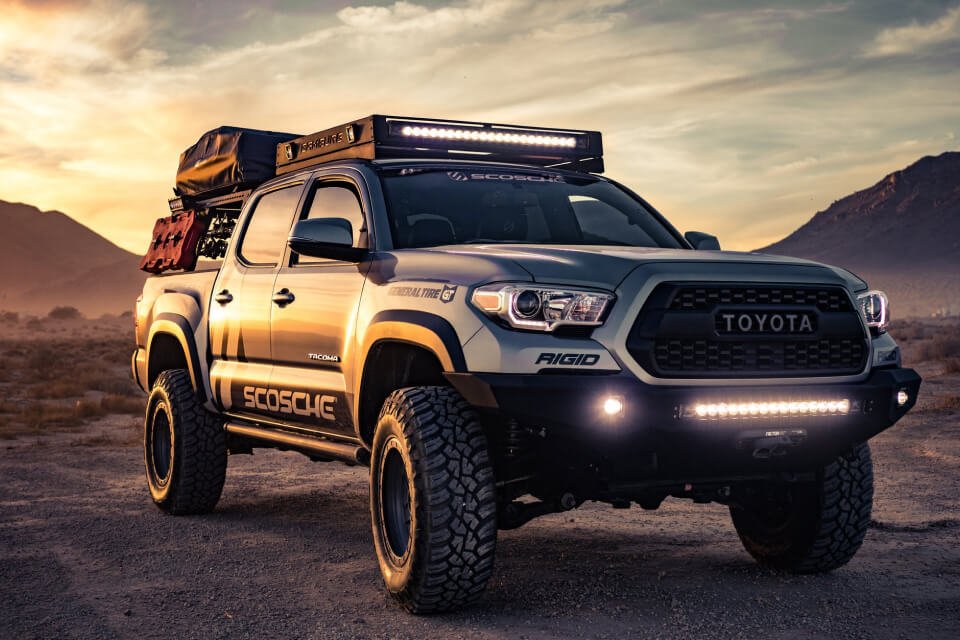Automobiles have become an integral part of our lives, providing us with convenience, mobility, and freedom. However, navigating the world of automobiles can often be overwhelming, especially for those who are new to the automotive realm. To help demystify the subject, this article aims to provide answers to some of the most frequently asked questions about automobiles. Whether you’re curious about car buying, maintenance, insurance, fuel efficiency, safety features, or emerging technologies, this comprehensive guide will equip you with the knowledge you need to make informed decisions and better understand the world of automobiles.
1. Understanding the Basics
1.1 What is an automobile?
An automobile is not just a fancy word for a car. It’s the four-wheeled wonder that gets us from point A to point B (and sometimes even point C if we’re feeling adventurous). In simpler terms, it’s a motor vehicle that’s designed for personal transportation. It’s like having your own personal chariot, minus the horses and all the medieval drama.
1.2 A brief history of automobiles
Have you ever wondered how we went from horse-drawn carriages to sleek vehicles with turbocharged engines? Well, hang on tight, because we’re about to take a whirlwind tour through the history of automobiles. From the invention of the first steam-powered vehicle to the mass production of cars by Henry Ford, we’ll explore the milestones that shaped the modern automobile as we know it. Buckle up, history buffs!
1.3 Different types of automobiles
When it comes to automobiles, one size definitely does not fit all. There are a variety of different types of vehicles out there to suit different needs and preferences. From the zippy little hatchbacks that maneuver through traffic like ninjas to the imposing SUVs that can take on any terrain, we’ll break down the different categories of automobiles. So whether you’re looking for a compact city car or a muscle-bound beast, we’ve got you covered.
2. Frequently Asked Questions about Car Buying: Making an Informed Decision
2.1 What factors should I consider when buying a car?
Buying a car is no small decision. It’s like committing to a long-term relationship, except you don’t have to deal with emotional baggage (unless you develop an unhealthy attachment to your car, but that’s a different story). So what should you consider before taking the plunge? We’ll talk about factors like budget, fuel efficiency, reliability, and even that little thing called style. After all, you want your car to be both functional and fabulous, right?
2.2 Should I buy a new or used car?
Ah, the age-old dilemma: to buy new or used. It’s like choosing between a fresh-out-of-the-oven pizza and a day-old slice. Both have their pros and cons, but it ultimately boils down to your personal preferences and budget. We’ll weigh the advantages and disadvantages of buying new and used cars, so you can make an informed decision without breaking the bank (or missing out on that new car smell).
2.3 How do I negotiate the price when buying a car?
Negotiating the price of a car is like playing a strategic game of chess, except the stakes are much higher (and you don’t have to wear a funny hat). Whether you’re a master negotiator or a newbie, we’ll equip you with some savvy tips and tricks to help you get the best deal possible. From doing your research to keeping a poker face (no actual poker skills required), we’ll guide you through the art of negotiating like a pro.
3. Common Car Maintenance Questions: Keeping Your Vehicle in Top Shape
3.1 How often should I change the oil?
Oil changes are like spa days for your car. They keep everything running smoothly and prevent unwanted breakdowns. But how often should you treat your car to this blissful experience? We’ll break it down for you, taking into account factors like mileage, driving conditions, and even the type of oil you use. So go ahead, give your car a little pampering session—it deserves it.
3.2 What are some basic car maintenance tasks I can do myself?
Not all car maintenance tasks require a degree in rocket science (although that would be pretty cool). In fact, there are several basic tasks you can tackle on your own without breaking a sweat or a wrench. From checking the tire pressure to replacing the air filter, we’ll provide you with a handy list of DIY maintenance tasks that’ll keep your car humming like a happy camper. No overalls or hard hats are required.
3.3 When should I replace the tires?
Tires are like the shoes of your car—they take you places and keep you grounded. But just like shoes, they eventually wear out and need to be replaced. So how do you know when it’s time to bid farewell to your trusty set of wheels? We’ll give you the lowdown on tire tread depth, signs of wear and tear, and other factors that indicate it’s time for a tire change. Get ready to roll out on the road with confidence.
4. Exploring Auto Insurance: Understanding Coverage and Rates
4.1 What are the different types of auto insurance coverage?
Auto insurance is like a safety net for your car. It protects you and your beloved vehicle from the unexpected mishaps that life may throw your way. But with so many different types of coverage out there, it can be as confusing as trying to solve a Rubik’s Cube blindfolded. We’ll unravel the mystery and guide you through the different types of auto insurance coverage, from liability to comprehensive, so you can choose the one that suits your needs.
4.2 How do insurance companies determine my rates?
Insurance rates are like secrets guarded by a mysterious group of actuaries (okay, maybe it’s not that dramatic, but you get the idea). Have you ever wondered how insurance companies calculate your premiums? We’ll shed some light on the factors that play a role in determining your rates. From your driving record to the make and model of your car, we’ll give you a glimpse behind the curtain of the insurance world.
4.3 What factors affect my auto insurance premium?
Auto insurance premiums are like puzzles with missing pieces. There are numerous factors that influence the cost of your insurance, and understanding them can help you save some serious dough. We’ll discuss variables like your age, location, and even your credit score (yes, your financial history can affect your car insurance—life is full of surprises). So get ready to crack the code and uncover the factors that can either inflate or deflate your insurance premium.
5. Fuel Efficiency and Environmental Impact: Addressing Concerns
5.1 What is fuel efficiency and why is it important?
Fuel efficiency refers to how efficiently a vehicle uses fuel to power its engine. In simple terms, it’s all about getting more mileage out of each gallon of gas or liter of diesel. And why is it important, you ask? Well, aside from saving you some hard-earned cash at the pump, fuel efficiency plays a significant role in reducing our overall carbon footprint. So, by choosing a fuel-efficient vehicle, you’re not only saving money but also doing your part for the environment.
5.2 How can I improve my vehicle’s fuel efficiency?
Ah, the million-dollar question! Improving your vehicle’s fuel efficiency doesn’t have to be complicated. Start by keeping your tires properly inflated, as underinflated tires can cause your engine to work harder and guzzle more fuel. Next, lighten the load in your car by removing unnecessary items from the trunk or backseat. And lastly, avoid aggressive driving behaviors like sudden acceleration and braking, as they can seriously dent your fuel efficiency. So, drive smart, and your wallet will thank you.
5.3 What are some eco-friendly car options available today?
If you’re looking to reduce your carbon footprint even further, you’ll be pleased to know that there are plenty of eco-friendly car options available today. Hybrid vehicles, such as the Toyota Prius, combine a conventional engine with an electric motor to achieve impressive fuel efficiency. Meanwhile, fully electric vehicles, like the Tesla Model 3, run solely on electricity and produce zero tailpipe emissions. These electric wonders are not only good for the environment but also offer a thrilling and futuristic driving experience. So, hop on the green bandwagon and give Mother Earth a hug.
6. Car Safety Features: Protecting Yourself and Others on the Road
6.1 What are the essential safety features in modern cars?
Modern cars come equipped with a plethora of safety features designed to keep you and your passengers safe on the road. Some essential ones include antilock braking systems (ABS), which prevent your wheels from locking up during sudden braking, and traction control, which helps maintain stability on slippery surfaces. Additionally, electronic stability control (ESC) keeps your vehicle on its intended path during maneuvers, while lane departure warning systems (LDWS) alert you if you unintentionally drift out of your lane. These features, combined with dependable seat belts and airbags, form a robust safety net for your driving adventures.
6.2 How do advanced safety systems like ABS and airbags work?
Ah, the wizards behind the scenes! ABS uses sensors to detect when a wheel is about to lock up, triggering rapid braking and release cycles to ensure maximum grip while steering. Think of it as a dance between your foot and the brake pedal, all happening in milliseconds. As for airbags, they are inflatable cushions that deploy upon impact to minimize the force of a collision. When a crash occurs, sensors detect the sudden deceleration and trigger the deployment of airbags from various locations in your vehicle, cushioning you from harm. It’s like having a cuddly safety teddy bear ready to protect you.
6.3 Are there any additional safety features I should consider?
Absolutely! While modern cars come with a range of standard safety features, there are some additional goodies you may want to consider. Adaptive cruise control uses radar or cameras to maintain a safe distance from the vehicle ahead, automatically adjusting your speed as needed. Blind-spot monitoring systems alert you if there’s a vehicle lurking in your blind spot, preventing any unpleasant surprises during lane changes. And last but not least, forward collision warning systems provide an extra set of eyes by sensing potential frontal collisions and giving you a heads-up to react in time. These extra safety features can add an extra layer of security to your everyday drives.
7. Emerging Technologies in the Automotive Industry: What’s on the Horizon?
Ah, the future! The automotive industry is constantly evolving, and there’s always something exciting on the horizon. One emerging technology that has gained significant attention is autonomous driving. Picture yourself sitting back and letting your car take the wheel while you catch up on your favorite TV show or take a refreshing nap. While full autonomy is still a few years away, many vehicles already offer advanced driver-assistance systems (ADAS) that can handle tasks like steering, braking, and accelerating in specific situations. So, get ready to embrace the future of driving, where cars may be just as capable as your favorite secret agent.
By addressing the most frequently asked questions about automobiles, we hope this article has provided you with valuable insights and information. Whether you’re a first-time car buyer, a car owner looking to maintain your vehicle, or simply interested in staying up to date with the latest advancements in the automotive industry, having a solid understanding of automobiles is essential. Remember, knowledge is power, and armed with the answers to these commonly asked questions, you can approach the world of automobiles with confidence and make informed decisions that suit your needs and preferences. Happy driving!




